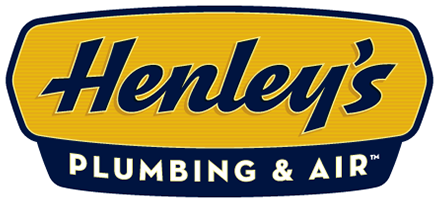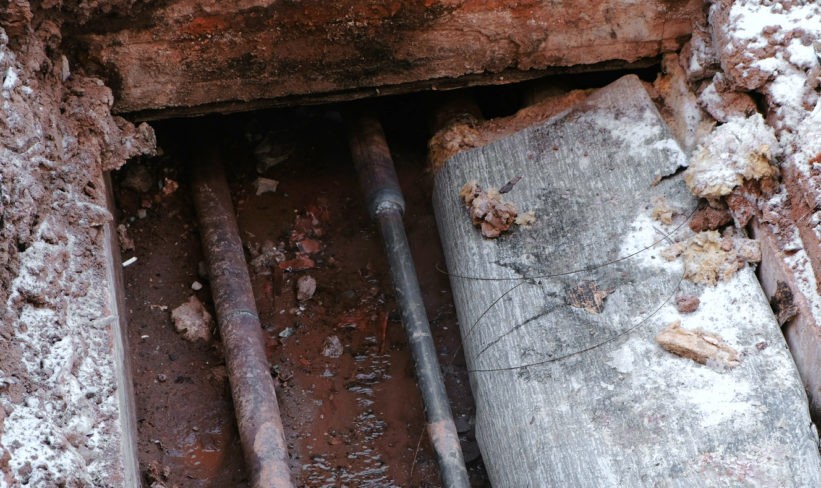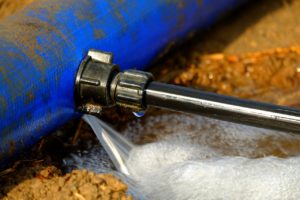Some leaks are easy to detect. Spraying water under your sink would point to a leak in that pipe. Slab leaks, however, are another story. These types of leaks occur underneath your home’s concrete slabs. They are particularly frustrating because they can be complicated to detect. Fortunately, they’re not impossible. Knowing what to look for can help you to get the issue addressed quickly, preventing significant damage. If you notice any of these seven warning signs, it may be time to get slab leak detection services.
There’s a Spike in Your Water Bill
When you have a leak, your water runs 24/7 instead of only when you turn it on. Since your water is running all of the time, your water bill is going to increase. A sudden spike in your water bill without any explanation, such as guests in your home increasing your average water usage, can indicate a leak. If you can’t find a leak within your home, it could point toward a slab leak.
Reduced Water Pressure
When you have any type of leak, including a slab leak, less water can run through your pipes to where you need it. This is because water is escaping out of the pipe where it shouldn’t be. In addition to increasing your monthly water bill, a slab leak also results in less water pressure. If you suddenly notice a decrease in your water pressure when no other fixtures are being used at the same time, it could point to a slab leak.
Hot Spots on Your Floor
A majority of slab leaks, approximately 80%, occur in the hot water line. As the hot water leaks out into the ground, it eventually begins to heat the concrete above it. As the concrete warms, your flooring starts to get hot. These spots are generally easier to detect on hardwood, tile, and linoleum floors. It can be more challenging to identify them through carpeting. If you do notice odd hot spots on your floor, it could be an indication that you have a leak in your hot water pipe.
Damaged or Wet Flooring
In many cases, water from a slab leak can’t go anywhere but up. As a result, the water will eventually reach your flooring, which can then result in some significant damage. The exact damage will depend upon the type of flooring you have. If you have carpeting, you might notice that some areas of your carpet suddenly feel damp and look darker than the rest, and you know that no one has spilled anything. For those with hardwood flooring, a slab leak can cause floorboards to warp. Damaged flooring may require repairs or replacement, which can become quite expensive.
An Unpleasant Odor
As water leaks up and into your floors, other issues will start to develop as well. The moisture from the water can allow mold and mildew to begin growing under your floorboards or under and in your carpeting. Some of that moisture may also be absorbed into your walls, which can then lead to mold growth in the drywall. You might not be able to see the mold and mildew growth, but your nose will certainly detect it. If you start to smell a musty odor coming from your floors or walls, it’s time to start inspecting your home for other signs of a slab leak.
You Hear the Sound of Running Water
If you hear the sound of running water even though there is no water on in your home, it may be time to take a closer listen. Take some time to turn off all of the fixtures in your home, including your water heater. Head to the lowest level of your home and pay close attention to the floor. The sound of water flowing, even though all of your water is turned off, could indicate that you have a slab leak and that it’s time to call for slab leak detection services.
Pooling Water
When a slab leak develops, water collects underneath the slab until it finds somewhere else to go. Slab leaks can present themselves either outside or inside of the home. On the outside of your home, it may appear as if the water is pouring out from the slab foundation. If there’s no water source, such as a hose, nearby, the culprit could be a slab leak. On the inside of your home, you might notice pools of water on the floor. Check to see if you have a leak in a nearby appliance. If the appliances are fine, it could be water coming up from a slab leak.
Final Thoughts
Slab leaks can cause a lot of significant damage to your home, ruining carpets, flooring, and walls. Moisture can cause mold and mildew damage. Repairing that damage caused by these leaks can get quite expensive. If you notice any symptoms of a slab leak, it’s essential that you get slab leak detection services as soon as possible.


